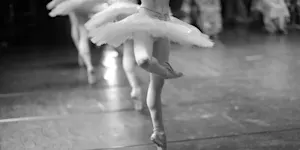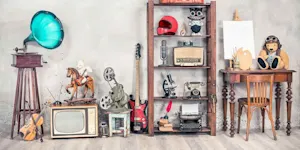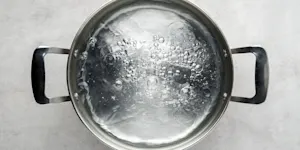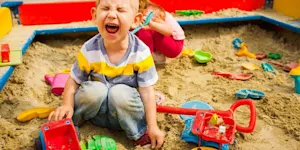What Makes This Word Tick
"Discombobulate" is one of those delightful words that sounds just as chaotic as what it describes. It's all about confusion and disorder, typically used when you're feeling out of sorts or thrown off your usual game. Whether your GPS took you for a ride through an unexpected route or you're baffled by a plot twist in your favorite mystery novel, "discombobulate" perfectly captures that sensation of mental muddle.
If Discombobulate Were a Person…
Imagine Discombobulate as your zany uncle who always arrives unexpectedly, somehow manages to spill something at every family gathering, and makes hilarious slip-ups that you can't help but laugh at. Never mean-spirited, but certainly an upender of the status quo, this person thrives on keeping everyone on their toes with unpredictable antics.
How This Word Has Changed Over Time
Though its origins are rooted in 19th-century American slang, "discombobulate" has maintained its playful spirit. Originally, it was a mock of highfalutin Latinate words, capturing the spirit of the times with a lighthearted nod to the trend of coining pseudo-fancy words. Over time, it has remained fairly consistent in use, still keeping its niche as a term for humorous disarray.
Old Sayings and Proverbs That Use Discombobulate
You won't find "discombobulate" sprinkled throughout traditional proverbs, but it could slip easily into a phrase like, "A journey is best measured in friends, rather than miles," reimagined: "A journey is best remembered by how delightfully discombobulating the friends."
Surprising Facts About Discombobulate
A big surprise – "discombobulate" doesn't have a sensible etymology but rather stems from American slang. It was born in the 19th century as part of a playful linguistic trend that fancied irregular verbs. And while it might sound academic, the word never really had an official start in scholarly writing.
Out and About With This Word
While you might not hear "discombobulate" on the subway every day, it remains a favorite in playful contexts. Whether it means finding oneself lost in a new city or juggling coffee while trying to open the door, the word sees plenty of action when life doesn’t go off without a hitch.
Pop Culture Moments Where Discombobulate Was Used
Hollywood loves a word like "discombobulate," especially in comedies. It's the kind of term that might pop up in a sitcom where the characters are dealing with mistaken identities or mix-ups, underscoring the sheer absurdity of their predicaments.
The Word in Literature
While this exact word might not appear in Dickens’s work, it would feel right at home. Its quirky nature fits nicely into whimsical narratives and anything with a farcical twist. Authors fond of humor or satire might toss "discombobulate" in for a dash of unexpected spice.
Moments in History with Discombobulate
Imagine the initial chaos when the first Model T cars rolled off the assembly line – a society suddenly trying to comprehend and adapt to the mechanics, unspoken rules of the road, and etiquette. This era could be described as a time of delightful discombobulation, where society was reorienting itself around rapidly changing technology.
This Word Around the World
Beyond English, the idea of being discombobulated can translate into various idiomatic expressions globally. In Japan, you might say "maigo ni naru" (to become lost like a child), while in France, one might use "déconcerté," evoking that sense of bemusement. Each culture captures this charming state of perplexity in its unique linguistic style.
Where Does It Come From?
This word began its journey in the playful halls of 19th-century America, a fanciful concoction crafted to amuse rather than inform. Borrowing its style from the many invented words of the era, its roots don't dig deep into Latin or Greek but sit cheerfully on the surface of American slang innovation.
How People Misuse This Word
Sometimes folks might throw "discombobulate" into the mix when describing simple discontent or frustration. But true discombobulation involves a delightful tangle of confusion, not just mild annoyance or irritation.
Words It’s Often Confused With
Disorientate: Often seen as its sophisticated cousin; it emphasizes loss of direction rather than mental confusion.
Befuddle: Shares the chaos spirit but leans more towards a foggy mental state.
Fluster: Implies nerves in confusion, but doesn't quite capture the off-the-wall charm of discombobulate.
Additional Synonyms and Antonyms
For synonyms, consider "confound," "flummox," or "perplex." On the flip side, an antonym might be "clarify," as clarity is discombobulation’s true opposite, the settling of mental chaos into serene understanding.
Want to Try It Out in a Sentence?
"When the power went out mid-dinner party, everyone was merrily discombobulated, scrambling to locate candles and keep spirits high."
















